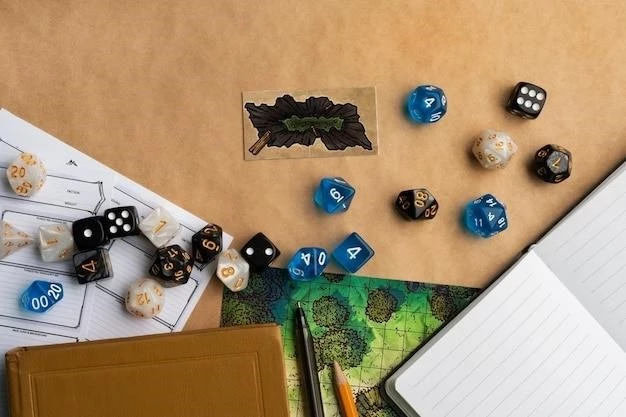Board games, a ubiquitous form of entertainment and a cornerstone of human socialization, have a rich and multifaceted history spanning millennia. From their humble beginnings as rudimentary tools for teaching and storytelling to their evolution into complex strategic challenges, board games have captivated and shaped human culture in profound ways.

Ancient Origins: From Dice to Strategy
The origins of board games can be traced back to ancient civilizations, where they served a variety of purposes beyond mere entertainment. Archaeological evidence suggests that dice, one of the earliest gaming elements, were used in ancient Egypt as early as 3000 BC. These dice, crafted from materials like bone and ivory, were employed in games of chance and divination, reflecting the importance of fate and fortune in ancient societies.
In ancient Mesopotamia, a civilization renowned for its intellectual prowess, board games like the Royal Game of Ur, dating back to 2600 BC, emerged as sophisticated forms of strategy and problem-solving. This game, played with dice and pieces on a board with a complex grid, showcases the early development of abstract gameplay and strategic thinking. Similarly, the ancient Egyptians played games like Senet, a game of chance and skill, on boards featuring a grid and pieces that represented different concepts like the journey to the afterlife.
The Rise of Strategy and Abstract Thought
The classical period witnessed a flourishing of board games in ancient Greece and Rome. Games like “Petteia,” a precursor to modern checkers, emphasized strategic maneuver and tactical thinking. These games, often played on boards featuring a grid pattern, introduced concepts of capturing opponent’s pieces and controlling territory, laying the foundation for modern strategic board games.
The Roman Empire further contributed to the development of board games with games like “Ludus Duodecim Scriptorum,” a game played on a board with a grid and dice, and “Tabula,” a game resembling backgammon. These games, played for entertainment and gambling, reflected the Roman fascination with chance and the interplay of luck and skill.
Medieval Innovations: Chess and Beyond
The Middle Ages saw the emergence of chess, a game that transcended its purely recreational purpose to become a symbol of intellectual prowess and a reflection of social hierarchies. Originating in India around the 6th century AD, chess spread across the world, captivating minds and sparking countless variations and strategies. The game’s intricate rules and strategic depth fostered a culture of intellectual competition and tactical mastery.
Beyond chess, other board games emerged during the medieval period, often reflecting the social and political landscapes of the time. Games like “Checkers,” “Backgammon,” and “Draughts” gained widespread popularity, providing opportunities for social interaction and intellectual stimulation.
The Renaissance and the Dawn of Modern Board Games
The Renaissance, marked by a renewed interest in classical learning and a flowering of creativity, saw the emergence of new board games that reflected the intellectual and cultural shifts of the era. Games like “Nine Men’s Morris,” a game of strategic placement and capture, and “Trivial Pursuit,” a game of general knowledge, became popular among the European aristocracy.
The printing press, a transformative invention of the Renaissance, played a crucial role in disseminating board games to a wider audience. Printed board games, readily available and affordable, contributed to the spread of board game culture and the development of a shared gaming experience.
The 20th Century: Board Games as a Mass Phenomenon
The 20th century witnessed a surge in the popularity of board games٫ fueled by technological advancements and a growing demand for family entertainment. The development of mass production techniques and the rise of the toy industry led to the creation of affordable and accessible board games٫ making them available to a broad segment of society.
The emergence of classic board games like “Monopoly,” “Scrabble,” and “Clue” transformed board games into a staple of family gatherings and social events. These games, designed to be accessible and engaging for a wide range of ages and skill levels, fostered a sense of community and shared experience.
The Rise of Modern Board Games: A Renaissance of Innovation
The late 20th century and early 21st century saw a resurgence in the popularity of board games, driven by a growing demand for complex and engaging experiences. The rise of “Eurogames,” characterized by strategic depth, thematic immersion, and player interaction, challenged the traditional dominance of classic board games.
Modern board games, designed by dedicated game designers and fueled by a passionate community of gamers, have pushed the boundaries of board game design. They feature intricate mechanics, engaging themes, and innovative gameplay, offering a level of depth and complexity that rivals video games.

The Significance of Board Games: Beyond Entertainment
Board games, beyond providing a source of entertainment, have played a crucial role in human development and societal progress. They have served as tools for learning, fostering cognitive skills like problem-solving, strategic thinking, and decision-making.
Board games have also played a significant role in social interaction and communication. They provide a platform for bonding, building relationships, and fostering a sense of community. The shared experience of playing a board game can strengthen social connections and create lasting memories.
Moreover, board games have served as vehicles for cultural exchange and the dissemination of knowledge. Games often reflect the cultural values and beliefs of their creators, providing insights into different societies and ways of life. They can also serve as educational tools, teaching players about history, geography, science, and other subjects in a fun and engaging way.
Conclusion: The Enduring Legacy of Board Games
From their humble beginnings as rudimentary tools for teaching and storytelling to their evolution into complex strategic challenges, board games have left an indelible mark on human culture. They have fostered intellectual development, strengthened social bonds, and provided a platform for cultural exchange. As technology advances and entertainment options multiply, board games continue to hold their own, offering a unique and enduring form of entertainment that transcends time and generations.










